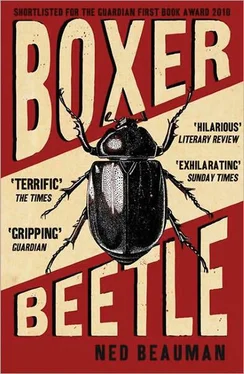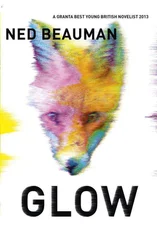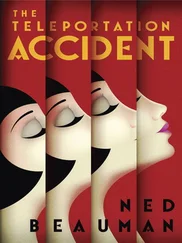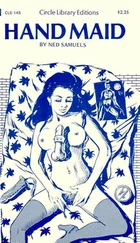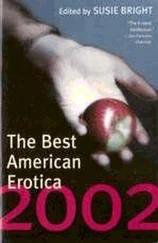The next day Erskine got a letter from his father, who for nearly a year had been planning a sort of political conference at Claramore. Now the date was set at last, for the beginning of August. Eminent men were to come from all over the world, and Erskine himself was to be allowed to give a short lecture on eugenics. Reading on, his great excitement was replaced by relief when he deduced that Evelyn had not yet said anything to his father about his suspicious ‘valet’; but then his relief was replaced in turn by dismay when his father, in a postscript, threatened to cut off his son’s funds if Erskine didn’t keep a promise that he had made nearly two years ago. He had a tiresome project to complete, and the final deadline was now the conference. For at least a month, then, the boxer and the beetles would have to be left mostly to their own devices. It was time to write the history of Pangaean — the Erskine dynasty’s greatest pride, and greatest embarrassment.
When Lydia Erskine’s pregnancy became conspicuously visible late in 1881, her husband felt nervous and decided he needed a project of his own. And that was why, four months later, on the same day that the Jews were driven out of the village of Fluek, the adverbs were driven out of the English language.
‘What’s the use of them?’ said Erasmus Erskine. ‘If we set grammatical rectitude aside, is there any difference between “The horse galloped swiftly” and “The horse galloped swift”?’
(This, anyway, is how I’m almost sure that Philip Erskine was almost sure that it must have happened.)
‘No,’ replied Richard Thurlow. ‘But there is a difference between “Coldly, he threw his wife’s love letters on to the fire” and “Cold, he threw his wife’s love letters on to the fire”.’
The two friends sat drinking coffee in the drawing room of Claramore Hall. Above their heads, Philip Erskine’s grandmother was in her seventh hour of labour, and exactly a thousand miles away Seth Roach’s grandmother was dressing her two sleepy daughters while her four-foot husband waited at the door of their cottage, the smallest man in Fluek standing guard with a scythe against the smallest pogrom in Russian Poland.
‘Very clever, Thurlow, I’m sure, but once again you’ve missed the point by a furlong. In a true philosophical language, there would be no such ambiguity because there would be no word that meant both “of a low physical temperature” and “unemotional”.’
Ever since the collapse three years earlier of Ultima Thule , the London archaeological periodical of which he had been sole patron and publisher-in-chief, Erskine had not really known how to occupy himself; it was this that had led to his belated experiment in courtship and marriage, but after that he was still bored. Thurlow had tried to persuade him to take up poetry, but he found it to be a frivolous parasite on human endeavour, and after he was not permitted to stand in the general election as the Conservative candidate for North Hampshire he began to feel much the same of politics. As Lydia bloated, he kept returning in his mind to certain points of discussion at the last ever Ultima Thule editorial meeting, which was convened in March 1879 at the United Universities Club.
The explorer Ferdinand Silkstone, on his return from India, had asked to publish an article in the magazine about the legendary sunken kingdom of Kumari Kandam, claiming that on the Coromandel coast near Madras he had discovered a network of undersea caves which showed evidence of habitation by some advanced civilisation at least twenty thousand years past. At two o’clock that day, because Silkstone had not yet arrived at the meeting with his article, they were speculating with great excitement about the Tamil ancients of Kumari Kandam. How might they have spoken, for instance? Marcus Amersham, the editor of Ultima Thule , believed they would have had a melodic tongue of wonderful elegance, which reminded Gibbs, the treasurer, of a French musician called François Sudre who had invented an entirely new mode of communication called Solresol based on the seven notes of the scale: do, re, mi, fa, sol, la, si. After that of course they began to talk about the Royal Society of the seventeenth century, whose members were mad for a priori constructed languages, and Dodson, the secretary, even brought up St Hildegard, a twelfth-century abbess of Rupertsberg in the diocese of Mainz who had invented a language of nine hundred words in order to talk to angels. Then Silkstone arrived.
Silkstone was a cheerful burly man whose laughter could have torn the stitches out of a straitjacket. He spoke for about an hour. Afterwards, everyone but Erskine broke out into applause. The explorer gave his thanks and left. And then the row began.
Erskine alone thought they ought to see more evidence before they published the article: Silkstone’s story had been contradictory and his sketches imprecise, and he had not brought back a single ancient artefact, supposedly because they were all too fragile. Amersham, Gibbs and Dodson, meanwhile, were convinced that Silkstone’s sensational findings would finally give Ultima Thule the upper hand against their smug rival The Journal of the British Ethnological Society . In the end Erskine, unpersuaded, felt he had no choice but to withdraw his money from the magazine in protest, which meant of course that there could never be another issue. He had not spoken to Amersham or Gibbs or Dodson since that day, and almost every night for three years he had lain awake in bed wondering if Silkstone could have been telling the truth after all. Kumari Kandam’s failure to make an appearance in The Journal of the British Ethnological Society was only partial vindication, since its editors were famously narrow-minded. Could he have inadvertently suppressed the greatest archaeological revelation of the age? Thurlow thought it was ridiculous but Erskine knew he could never be certain. And his former colleagues were still very well respected, whereas everyone had forgotten him down here in Hampshire.
These days, however, although he was still preoccupied with certain details of that meeting, it was not so much with Kumari Kandam as with the notion of a universal artificial language — a language without irregularities, idiosyncrasies or ambiguities. The point was not just to bring together men of different nations, but to clear their heads in the process: there would be no room for fallacy or paradox in a language where every word bore a perfect Adamic relationship to its object. Excavating the past was enjoyable enough, but to construct one of these languages would be to invent the future.
‘But Erskine, no one wants to speak a brand-new language for the same reason that no one wants to live in a brand-new castle,’ said Thurlow in the drawing room of Claramore. ‘A language needs its secret passages and bricked-up dungeons. Otherwise poets like me would have no profession.’
‘A good thing too,’ said Erskine. And then they heard a baby’s scream.
Feeling that he could have no useful influence on his heir until the boy was at least eight or nine, Erskine began his project in earnest. He was determined to construct the language without any contaminating influences from any existing languages except perhaps Latin and Greek; but it was much harder than he’d anticipated, and he got himself in hopeless tangles with even the most basic syncategoremata, often rushing down to dinner very late to find his wife chatting happily with Thurlow. He was even forced to consider putting the adverbs back in, but concluded that he had left himself no room for them, on the same day in June 1882 that Sinner’s grandfather returned with his wife and daughters to Fluek, where they were told by local officials that, according to Tsar Alexander III’s new Temporary Regulations, no Jews were allowed to settle in the countryside of Russian Poland. When they explained that their family had lived in Fluek for generations and they had only been absent for a few months to escape the pogrom, they were asked to point out where they had lived — which they couldn’t do because their house had been burnt down and their land taken over. So they left Fluek again and went north to the city of Bialystok, where their third child, Sinner’s father, was born on the same day in January 1890 that Erskine completed the 998-page first draft of the Pangaean Grammar and Lexicon .
Читать дальше
